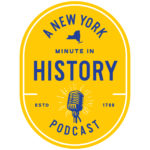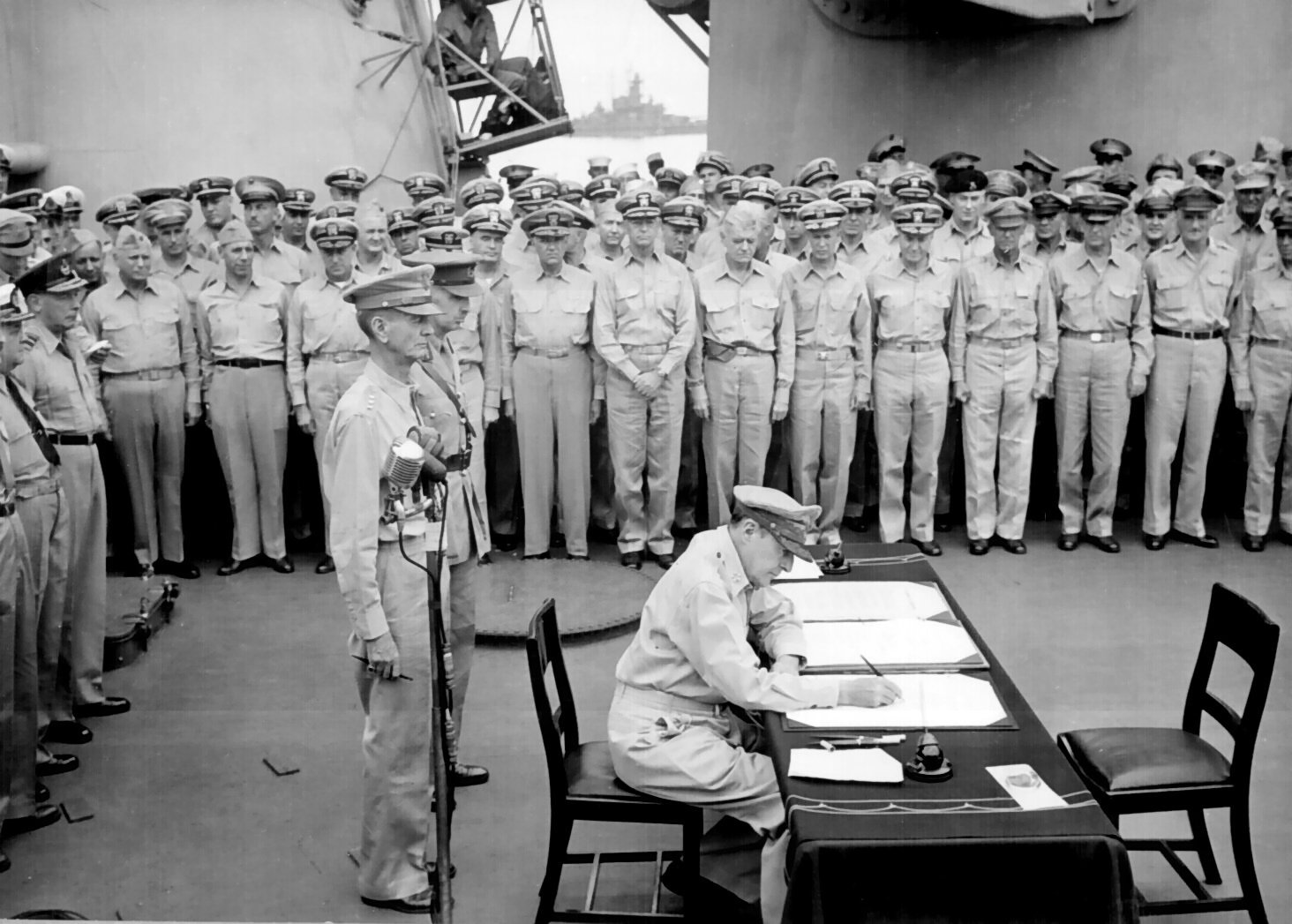
On September 2, 1945 the hostilities of World War II ended when Japan’s formal surrender was signed aboard the U.S.S. Missouri in Tokyo Bay. Aboard that ship 75 years ago was Bob Kennedy, a native of New York’s Steuben County who now lives in Saratoga Springs. WAMC’s Jim Levulis, the producer of A New York Minute In History, spoke with Kennedy about that day.
Kennedy: I grew up with a brother and sister in a small town of Canisteo, New York, which is over in Steuben County and the Southern Tier. It’s a very small town in rural New York State, I guess would be the best way to describe it. I was approaching age 18, which was during the Second World War was the age that you were drafted if you chose not to volunteer, and I decided I would prefer the Navy. So the best way to do that was to enlist, and that’s what I did. I was 18 so it must have been ‘43.
Levulis: Where did your service take you?
Kennedy: Well, I was part of a small group of probably 20 sailors aboard the Missouri. It was a huge ship and a big crew, but this small group was put together for the purpose of maintaining the radar on the ship and at that time, radar was fairly new. So the Navy decided they needed a bunch of sailors. I spent about 10 months in school before getting a duty assignment to the Missouri and our job aboard ship was to just find out where it was located and it was located all over the ship and to maintain it and look after it as best we could. And the radar had two purposes. It was search radar, which was radar that scanned the ocean surface looking for other ships. And then a lot of fire control radar which is actually used to control the position of not the main battery but secondary anti-aircraft firings aboard ship. So it had two roles, search and fire control. We served in the Pacific and that was where Missouri got some of its fame because we ended up, after the atomic bomb attacks on Japan and their decision to quit the war, we traveled into Tokyo Bay and the Missouri was the site of the actual surrender ceremonies conducted by General MacArthur. The selection of the Missouri for that honor really was that Harry Truman was president after Roosevelt died, and Harry Truman was from the state of Missouri. So when it was decided that this ceremony should take aboard some Navy ship in Tokyo Bay, Missouri was designated as the as the position for that activity and so, we who just did our job of crossing the Pacific we were engaged in the taking of the island of Iwo Jima and Okinawa and then moved on and as the war came to a close, we ended up in Tokyo Bay.
Levulis: And so you were aboard the Missouri on September 2, 1945?
Kennedy: That is correct. I was a second class Petty Officer. Played no significant role, just did my job as did everybody aboard that ship. It was a great bunch of sailors. My wife and I have actually attended some reunions of the Missouri a number of years ago, the 50th anniversary of the end of the war. We visited and got aboard the Missouri at that time it was in Bremerton, Washington. But we’ve kept our eyes on the Missouri. It’s currently retired, of course, and berthed in Honolulu, in Pearl Harbor.
Levulis: And going back to that day in 1945, what do you remember most about that day?
Kennedy: Well, it was a ship that was crowded with admirals and generals from all of the Allied powers. We had about 4,000 crew members and all of a sudden we’re looking at brass in every direction. General MacArthur conducted the ceremonies. And we were able to witness the arrival of the Japanese group of people that got on board and were designated to sit at a certain table on the main deck aft and, and then General MacArthur conducted with a microphone so that he was communicating to all of us aboard ship, and at the same time talking around the world as to what was going on. And I do remember his final words and he said ‘These proceedings are closed.’ And that was the official end of World War II. And I do remember those words.
Levulis: I have to imagine obviously, you still have a job to do. You’re overseas. What was the day after then like? The war is over. Do you remember what was running through your head in the days after?
Kennedy: Yes. I was 19 years old and like everybody who was involved in the war, we were happy that the war was over and we wanted to go back and resume our civilian lives, go back to our family and our hometown. I do remember that on one of the main battery turrets they had drawn a crude map of the Pacific and each day they would show our advance as we sailed east toward the United States. We ended up going through the Panama Canal, and we’re largely crew members from the East Coast and a lot of them from around New York State. So New York City gave us a grand welcome. And I had to put in a few more months after that before I was discharged, but I was back in New York state which is my home state and I got to see my family and they got to see me even though I was still in the Navy for a few months. Great experience.
Levulis: And what do you do after you got out of the Navy?
Kennedy: Well, I wanted to go to college and I did. I graduated from Alfred University in Alfred, New York, a small college in central part of the state and wanted to be a school teacher. Ended up working really most of my working years as it was a result of my training in the Navy, I worked for General Electric for a number of years supporting some of their contracts that they have with the government for this and that. We moved around the country a lot. But I guess even though I went to college to be a school teacher, I ended up being an engineer with GE, for most of my career.
Levulis: And what finally led you to Saratoga Springs?
Kennedy: We were living in Florida as a retired couple, and we learned about these new facilities that have popped up around the country. We have aged more than my parents’ and my grandparents’ generation that didn’t live as long. We’re in a community here in Saratoga Springs called Prestwick Chase, it’s a community for elderly people. We are looked after very carefully. The COVID-19 problem, they have protected us very well in that regard. And we are well fed and we each have our own apartment and basically renting from this organization, but its sole purpose is to look after elderly people later in their life. And we’re happy here. We’ve been here about 10 years.
Levulis: And you mentioned your wife’s with you?
Kennedy: Yes, yes, she is. We’ve been married for 71 years.
Levulis: That is incredible. 71 years. Well, congratulations.
Kennedy: Well, we think it’s gonna work out. [Laughter]
Levulis: [Laughter] Still some uncertainty, some trepidation from day one to 71 years. [Laughter] And your wife’s name if you don’t mind me asking?
Kennedy: No, her name is Ruth.
Levulis: Well, Bob, I did want to ask you, we often hear about how the nation came together during World War II. And with the U.S. now facing a global pandemic, do you see any of that same sort of national unity today?
Kennedy: Well, I like to say we do in regard to fighting the pandemic. Politically, I think we’re more divisive than I remembered. I feel at times that things would get done better if both political parties could give a little bit, but they don’t seem to want to do that anymore. But I’m sure we’ll survive. The politics is more bitter than I remember as a younger man.
